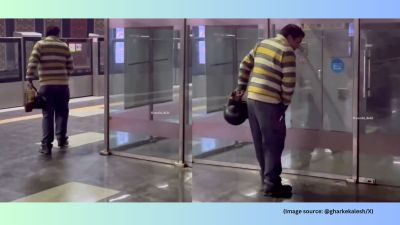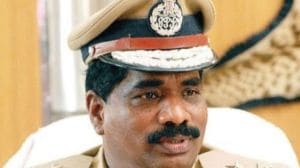Costly killings
Donald Rumsfeld, when asked about the sacking of museums and army atrocities in Iraq, employed two words in characteristically laconic fashi...

Donald Rumsfeld, when asked about the sacking of museums and army atrocities in Iraq, employed two words in characteristically laconic fashion: 8220;Things happen.8221; To which a reply can be fashioned in three words: 8220;Things shouldn8217;t happen8221; and it is the duty of those in the top echelons of the armed forces and government everywhere in the world to ensure that they don8217;t, especially in situations where they wield considerable power and influence.
The totally careless and condemnable shooting of an imam and his 13-year-old son in Vayil village, North Kashmir, by the army certainly should not have happened. It8217;s precisely such incidents that set the clock back in the state.
Each time some clumsy army manoeuvre or ham-handed police action takes place, it strengthens the secessionist elements within the state who rush to claim it as further proof of 8220;India8217;s atrocities8221; against the Kashmiris. The army top brass have, as yet, not resorted to any Rumsfeldisms to explain away the incident, but their response thus far has been pretty mealy-mouthed all the same: 8220;It8217;s a case of mistaken identity,8221; said an army spokesperson to this newspaper.
This is where dependable intelligence is crucial and training is absolutely imperative. Lack of knowledge of the terrain and local ways of life have proved costly for the army in the past, as for instance when a Rajouri shepherd and his flock were gunned down in Baramulla by soldiers new to the area who had no clue that this was a region frequented by pasturalists.
It is hoped that the army conducts a full inquiry into the incident and comes out with the findings swiftly because time is of the essence when ordinary people are disturbed, as they are in Kashmir today. The army must make known that it is as concerned about its human rights record as anyone else.
Much has been written and said about J038;K Chief Minister Mufti Mohammad Sayeed8217;s policy of applying the healing touch to the state. But it has been put to the reality test, time and again, in brutal J038;K and been found wanting. The challenge really is to strike that right balance between creating an alert and effective security regime and an ambience of freedom from fear.
The ordinary Kashmiri must, in other words, feel safe from the guns wielded by the militants, on the one hand, and the army, on the other. Whatever the Mufti8217;s other successes may be, he has singularly failed in achieving this. He must remember the price his arch-rivals, the leadership of the National Conference, has had to pay for fiddling while people were killed: The party which had a 57-strong presence in the state assembly found itself reduced to just 18 members in the short period of six years.
- 01
- 02
- 03
- 04
- 05































